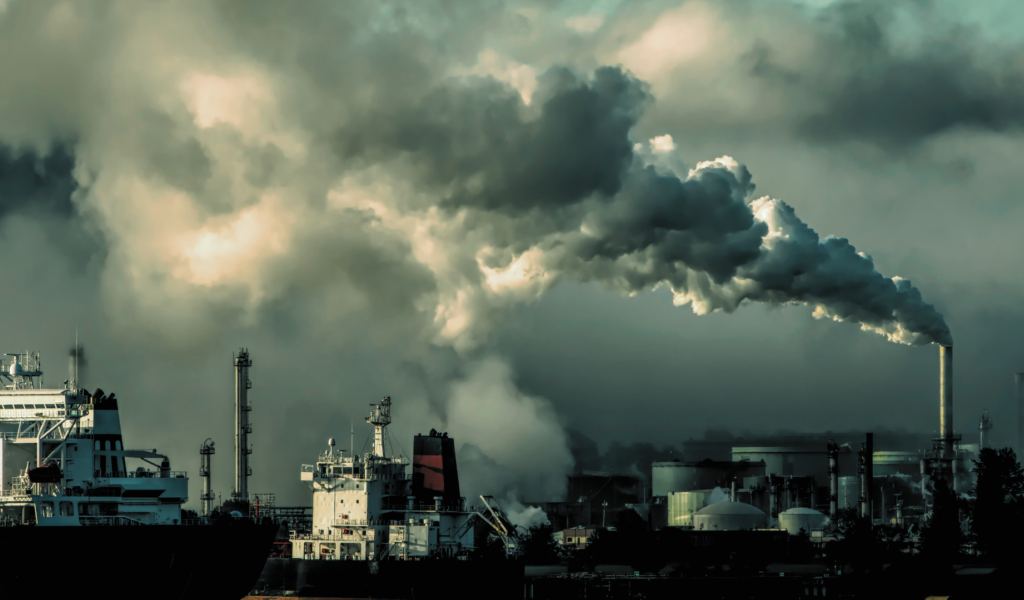On the occasion of the Munich Security Conference, EPICO KlimaInnovation and the Energy Resilience Leadership Group (ERLG) published a policy paper on how Germany and the EU can boost their energy resilience. Based on five key recommended policy trajectories identified in the policy paper, Germany and the EU can increase their open strategic autonomy.
Germany and the European Union (EU) are navigating a complex landscape marked by challenges such as Russia's aggression in Ukraine, energy crises, and geopolitical shifts. Amidst these challenges, the imperative for energy resilience has never been greater, particularly as the EU imports 60% of its energy. This policy paper presents a comprehensive strategy to enhance energy resilience while driving towards climate neutrality, focusing on industry challenges, the value of resilience, guiding principles, institutional capacity, and a new industrial policy framework.
Energy-intensive industries face significant hurdles in transitioning to green energy sources, particularly those relying on internationally traded commodities. Direct electrification is favored for efficiency, but renewable hydrogen will be necessary in targeted cases. However, the main problem for the implementation of direct electrification at large scale is the lack of RES electricity. Uncertainty in energy markets and supply chains poses risks to industries and downstream markets. A strategy for "green lead markets" is essential to address competitiveness concerns and ensure societal resilience. This policy paper suggests ten principles to guide energy policymaking, emphasizing energy efficiency, global market mechanisms, and innovation.
There is a need for enhanced EU-level action and integration of energy policy and markets. Recommendations for a 'New Industrial Policy Framework' include reforms in the electricity market design, regulatory sandbox initiatives, effective financial incentives, guarantees for innovation, and regressive grants to scale cleantech.
By implementing these recommendations, Germany and the EU can bolster energy resilience, support industrial transformation, and accelerate the transition towards climate neutrality, ensuring economic competitiveness and societal well-being in a rapidly changing global landscape .
“A New Industrial Agenda to increase Germany's Energy Resilience” is a policy paper resulting from EPICO KlimaInnovation's Policy Accelerator, two two-day long workshops respectively focusing on direct electrification and indirect electrification, which took place at Siemens Energy in Berlin between 9 and 12 January 2024.
Participants in our Policy Accelerator included: Domien Vangenechten (E3G), Wei Wu (Heatrix), Stephan Herrmann (Reverion), Christian Grenz (Siemens Energy), Christoph Sievering (Wuppertal Institute), Florian Gruschwitz (MAN Energy Solutions SE), Arne Stecher (Holcim), Tatjana Ruhl (DENEFF), Maria Leis (Breakthrough Energy), Maximilian Laurer (EPICO KlimaInnovation) and Sam Williams (EPICO KlimaInnovation), developed ideas to establish an Industrial agenda to increase Germany's energy resilience throughout the workshops.
In their role of 'challengers', Dr Stefan Müller (German Ministry for Education and Research), Bernhard Kluttig (German Federal Ministry for Economic Affairs and Climate Action), Esther Chrichellis (German Ministry for Finance), Christoph Reissfelder (Covestro), Alexander Fichtner (MAN Energy Solutions), Markus Röhner (MAN Energy Solutions), Jano Costard (SPRIN-D), Peter Schniering (Future Cleantech Architects), Stefan Müller (BFBM), Klaus Schäfer (DECHEMA), Tobias Lechtenfeld (Tech for Net- Zero) and Maximilian Matheis (Turn2x) each joined for a slot to provide new ideas and feedback to work developed by the core team.
Read and download our Policy Paper here.
External Content from epico
Please see the privacy policy of epico if you are loading external content.

